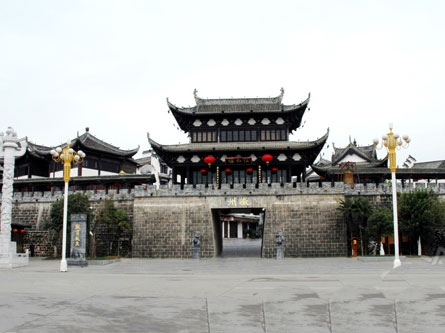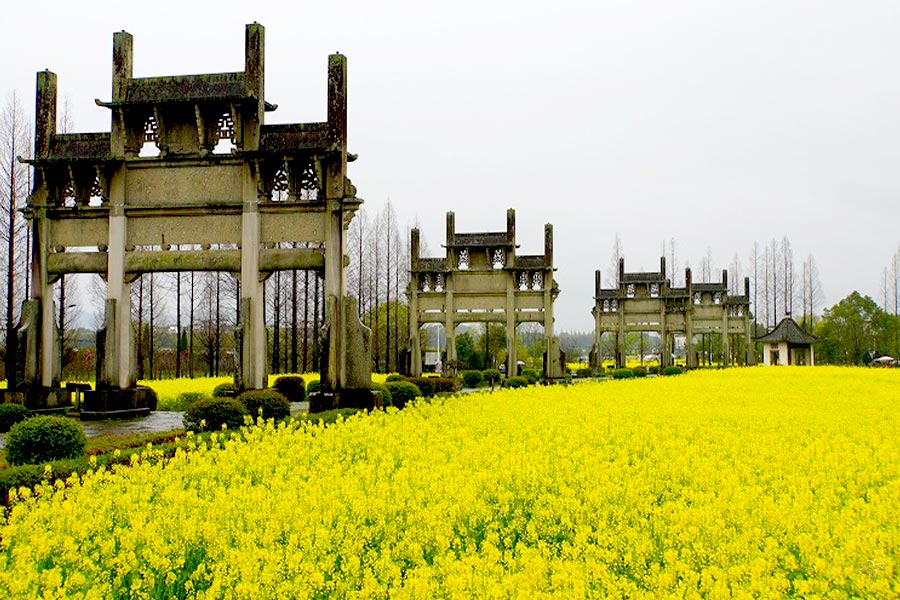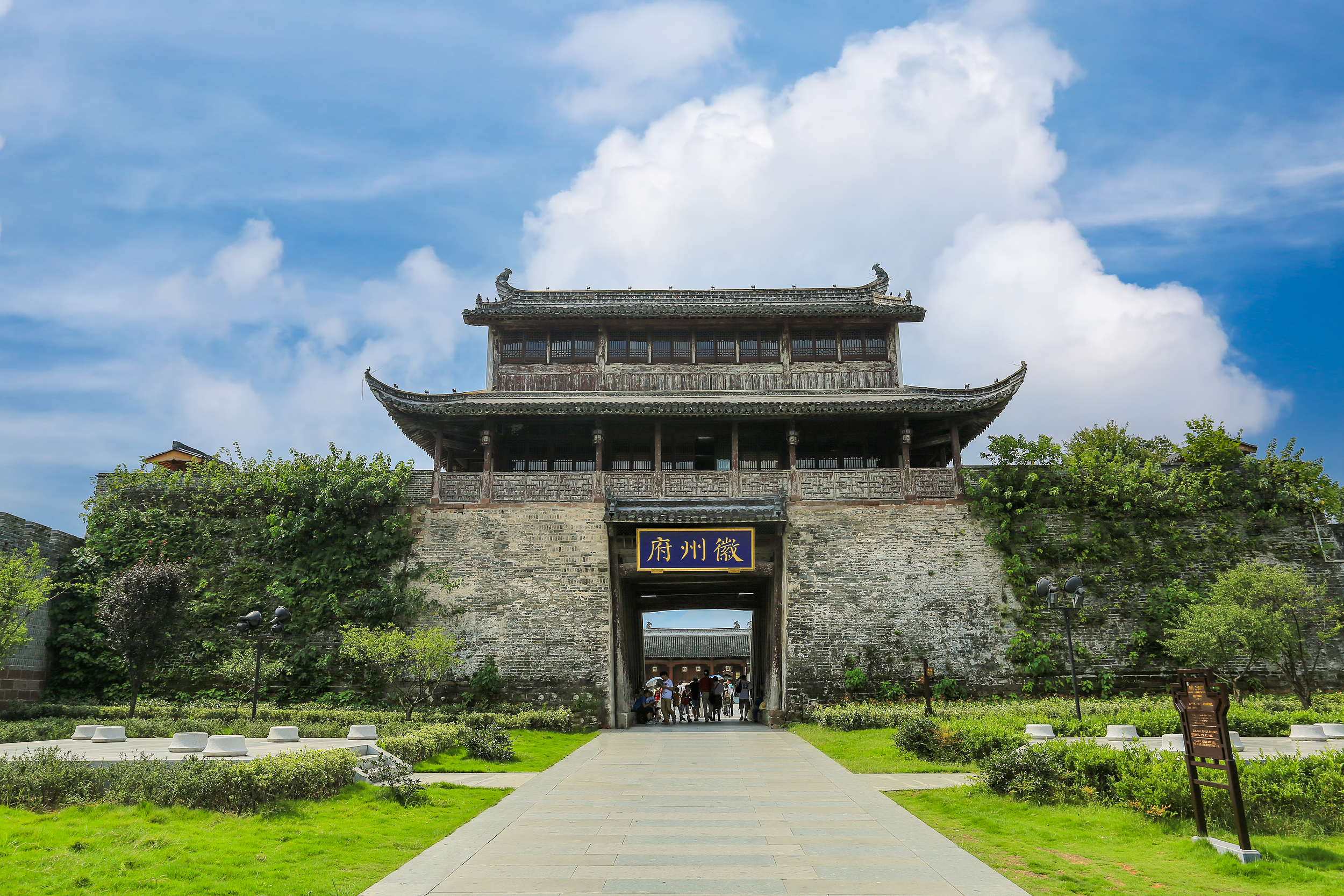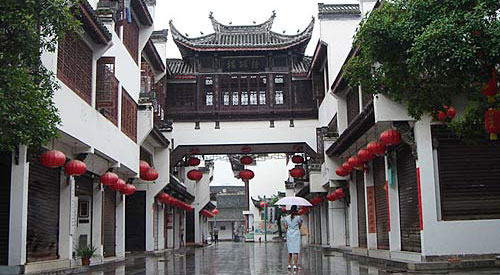Uncovering Huizhou’s Ancient Gardens and Cultural Charm

Welcome to Jusha Travel, where we dive deep into the hidden gems of China to inspire your next adventure! If you’re a traveler intrigued by Huizhou Ancient Gardens, or drawn to the rich tapestry of China garden culture, you’re in for a treat. Huizhou, nestled in the picturesque Anhui Province, offers a mesmerizing blend of ancient architecture, historical depth, and cultural vibrancy that’s perfect for culture enthusiasts and first-time visitors to China. In this post, we’ll explore the enchanting world of Huizhou’s ancient gardens and its iconic cultural landmarks, providing insights that tie into our focus on Huizhou cultural landmarks, Cultural attractions Huizhou, Huizhou travel guide, and China cultural tours. Here at jusha.travel, we love sharing tips to make your China journey unforgettable!
Exploring the Architectural Wonders of Huizhou Ancient Gardens

Huizhou’s ancient gardens are more than just green spaces; they are living masterpieces that showcase the pinnacle of China garden culture. At the heart of it all is Hui Garden, a sprawling 18,000-square-meter wonder located in Huizhou Ancient City. This site exemplifies the distinctive Huizhou Ancient Gardens style, blending residential dwellings, ancestral temples, and memorial arches into a harmonious whole. For those planning a Huizhou travel guide, a visit here is essential to appreciate the “three wonders of Huizhou architecture”: the elegant memorial arches, ancient dwellings, and ancestral temples (Visit Our China). One of the most striking features is the use of white walls and black tiles, which create a rhythmic, poetic aesthetic that reflects the region’s mercantile history. Intricate carvings—known as the “three carvings of Huizhou”—adorn doorways, pillars, and archways, showcasing expert craftsmanship in wood, brick, and stone. These details aren’t just decorative; they tell stories of the Ming and Qing dynasties, when Huizhou’s merchants commissioned such works to honor their ancestors. For a practical tip, visit during spring when the gardens burst with vibrant blossoms, making it an ideal spot for photography and peaceful reflection. If you’re on a China cultural tours, don’t miss the Xu Guo Stone Archway, built in 1584 to commemorate a Ming dynasty official—it’s a powerful symbol of Huizhou’s enduring legacy (China Discovery). Culturally, these gardens offer a serene escape that highlights the fusion of nature and human ingenuity. As a traveler, you’ll gain insights into how Huizhou cultural landmarks like Hui Garden embody Confucian values, emphasizing harmony and balance. Pro tip: Wear comfortable shoes for exploring the winding paths, and consider joining a guided tour to learn about the philosophical underpinnings—it’s a great way to deepen your understanding of Chinese traditions while staying refreshed with local teas served in traditional teahouses.
Diving into Huizhou’s Rich Cultural Depth and Landmarks

Beyond the gardens, Huizhou’s cultural charm lies in its deep historical roots, making it a prime destination for Cultural attractions Huizhou. With over 2,000 years of history, Huizhou has been shaped by Confucianism, clan traditions, and a thriving merchant culture. This is evident in sites like the ancient city’s preserved gate towers and merchant streets, which form a “city within a city” layout that’s one of the best-preserved in China (Go Grand China). As you wander through, you’ll feel like you’re stepping back in time, surrounded by ancestral halls that highlight the importance of family lineage and community. A key aspect of Huizhou cultural landmarks is the Xin’an Li Theory, a Confucian philosophy that influenced local education and social structures. This theory promoted moral integrity and scholarly pursuits, which is why you’ll find many halls dedicated to learning and ancestor worship. For food enthusiasts, Huizhou’s culture extends to its cuisine—think delicate Anhui dishes like smoked fish or braised pork, often enjoyed in garden-side eateries. An interesting fact: During the Ming and Qing dynasties, Huizhou merchants traveled far and wide, bringing back influences that enriched local China garden culture with elements from other regions. If you’re crafting your own Huizhou travel guide, include a stop at the Prefectural Government Office for an immersive experience. Here, modern performances blend light and shadow technology with storytelling, offering a multisensory dive into Huizhou’s past (CGTN News). This fusion of tradition and innovation is a nod to China’s evolving cultural scene, where ancient sites meet contemporary tech. Travelers should also be mindful of cultural sensitivity—dress modestly when visiting temples, and engage with locals to learn about customs, enhancing your journey with authentic interactions.
Living Heritage: Modern Revitalization and Travel Tips for Huizhou

Huizhou’s ancient gardens and cultural sites aren’t relics of the past—they’re vibrant, living heritage that’s being revitalized for today’s visitors. Interactive experiences, like the “Joy in Huizhou Prefecture” performances, use cutting-edge technology to bring history to life, appealing to both culture buffs and tech-savvy travelers (CGTN News). This creative approach makes Huizhou Ancient Gardens more accessible, allowing you to explore China cultural tours in an engaging way. For practical advice, start your trip with Doushan Street or Yuliang Scenic Spot, where historic structures blend with natural beauty. These areas are perfect for a leisurely stroll, and you might even catch a traditional tea ceremony. If you’re interested in Cultural attractions Huizhou, check out the Renhe Building and Deyue Tower for examples of classic Hui-style architecture. A useful tip for China travelers: Download translation apps to navigate language barriers, and opt for eco-friendly transport like electric bikes to reduce your footprint while exploring. Food-wise, Huizhou offers delights tied to its cultural heritage, such as stinky tofu or wild vegetable dishes, which pair wonderfully with garden visits. An intriguing fact is how Huizhou’s mercantile past influenced global trade routes, linking it to broader Asian cultural exchanges (Asia Cultural Travel). Whether you’re a solo adventurer or with family, these experiences foster a deeper appreciation for Huizhou travel guide essentials, blending history with modern conveniences.
Conclusion: Embrace the Charm of Huizhou with Jusha Travel
As we’ve uncovered, Huizhou’s ancient gardens and cultural landmarks offer a captivating journey into China garden culture, filled with architectural marvels, historical insights, and innovative experiences. From the serene paths of Hui Garden to the lively performances in the ancient city, Huizhou Ancient Gardens and Cultural attractions Huizhou provide a perfect blend of tradition and discovery for any China cultural tours or Huizhou travel guide. These sites not only preserve the essence of Confucian values and artisanal skills but also inspire us to connect with China’s diverse heritage.
At jusha.travel, we’re passionate about guiding you through such enchanting destinations. Whether you’re planning your next trip or just dreaming of one, remember that exploring Huizhou can be a transformative experience. We encourage you to share your thoughts in the comments below, visit jusha.travel for more inspiring China travel content, or check out our related articles on other cultural hotspots. Safe travels, and let’s keep uncovering the wonders of China together!

